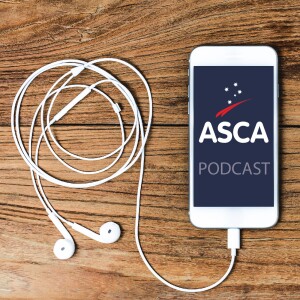
Nick Winkelman is the head of athletic performance & science for the Irish Rugby Football Union. His primary role is to oversee the delivery and development of strength & conditioning and sports science across all national (Men and Women | XV’s and 7’s) and provincial teams (Leinster, Munster, Connacht, and Ulster). Prior to working for Irish Rugby, Nick was the director of education and training systems for EXOS (formerly Athletes' Performance), located in Phoenix, AZ. As the director of education, Nick oversaw the development and execution of all internal and external educational initiatives. As a performance coach, Nick oversaw the speed and assessment component of the EXOS NFL Combine Development Program, and supported many athletes across the NFL, MLB, NBA, National Sport Organizations, and Military. Nick completed his PhD through Rocky Mountain University of Health Professions with a dissertation focus on motor skill learning and sprinting. Nick is an internationally recognized speaker on human performance and coaching science, and has multiple publications through the UKSCA, NSCA, IDEA Health and Fitness, Human Movement Science, and Routledge. Nick’s new book, The Language of Coaching, is scheduled to be released late 2019 by Human Kinetics.
QUOTES
“There is a ceiling effect with cueing expert performers”
“The descriptive language of the WHAT is not the same as coaching language of the HOW”
“The cue is matter of facilitating the last idea that goes into an athlete's head before they move”
“How can you become a micro storyteller and wire that into your coaching?”
“Every cue manifests as a thought and we have to take that responsibility for what that cue says”
“How we train has immediate consequences on the thoughts we use when we perform”
Show notes
1) Nick’s backstory from college to EXOS to the IRFU
2) The use of language to improve movement skill development and the research on different types of cues.
3) The effect of different cues on the retention of movement skills and psychological familiarity with cues
4) The Describe-Demo-Cue-Do-Debref loop
5) How to come up with cues that fit learning styles using the distance-direction-description paradigm
6) Analogies and inviting the athlete into the story
7) The difference between memory and attention and overloading athletes
8) Pain science and the words we use
9) Flow state, streaking and slumping
PEOPLE MENTIONED
Mark Vestergen
Connor Gleadhill
Rob Gray
Barbara Tversky
James Clear
view more
More Episodes
ASCA Podcast #38 - Jan Legg
 2019-08-17
2019-08-17
 2019-08-17
2019-08-17
ASCA Podcast #37 - Dr. Justin Keogh
 2019-07-25
2019-07-25
 2019-07-25
2019-07-25
ASCA Podcast #36 - Dr. Mark McKean
 2019-06-20
2019-06-20
 2019-06-20
2019-06-20
ASCA Podcast #35 - Dr. Jan Prins
 2019-05-18
2019-05-18
 2019-05-18
2019-05-18
ASCA Podcast #34 - Grant Jenkins
 2019-04-15
2019-04-15
 2019-04-15
2019-04-15
ASCA Podcast #33 - Sally Bailey
 2019-03-20
2019-03-20
 2019-03-20
2019-03-20
ASCA Podcast #32 - Dr Paul Comfort
 2019-02-14
2019-02-14
 2019-02-14
2019-02-14
ASCA Podcast #31 - Dr Tim Suchomel
 2019-01-30
2019-01-30
 2019-01-30
2019-01-30
ASCA Podcast #30 - Dr Chris Gaviglio
 2018-12-17
2018-12-17
 2018-12-17
2018-12-17
ASCA Podcast #29 - Mike McGuigan
 2018-11-28
2018-11-28
 2018-11-28
2018-11-28
ASCA Podcast #28 - Teena Murray
 2018-11-06
2018-11-06
 2018-11-06
2018-11-06
01245678910111213141516171819
Create your
podcast in
minutes
- Full-featured podcast site
- Unlimited storage and bandwidth
- Comprehensive podcast stats
- Distribute to Apple Podcasts, Spotify, and more
- Make money with your podcast
It is Free
- Privacy Policy
- Cookie Policy
- Terms of Use
- Consent Preferences
- Copyright © 2015-2024 Podbean.com






